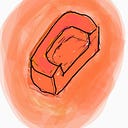Movie Review: Where the Wild Things Are
This review was first published on the author’s personal blog in 2010.
I had been looking forward to Where the Wild Things Are since I saw the trailer (and heard the accompanying awesome Arcade Fire song) on apple.com/trailers, but it wasn’t brought to Singapore theatres. The local distributors probably felt its style wasn’t suitable for the mainstream Singaporean audience. I was disappointed, but I was pleased when I discovered that they had brought the DVD to Singapore for wide release, so when my dad was renting movies from VideoEZY to watch during his post-theological college break, I asked him to borrow Where the Wild Things Are.
After watching it last week, this is what I have to say about it: It doesn’t entertain like a normal movie. Where the Wild Things Are is an odd, quirky, interesting movie worth thinking about. But when the lights come on, you’ll be scratching your head wondering what it all meant and if you had just wasted your time. But as you think about the story the movie was trying to tell, you’ll realise that it’s a subtle gem, like its source material, the children’s book of the same name by Maurice Sendak.
I found out that the director Spike Jonze had directed another movie I had watched before, Being John Malkovich, a movie which at that time I had also found very odd, but without any proper Lit. education in my pre-JC days, failed to understand what it was all about.
This time, however, it was a bit easier to understand.
Spoilers from here onwards.
The first part of the movie pretty much shows the protagonist, Max, behaving like all kids do: adorable half the time, and bratty the other half. He stomps in his sister’s room with his wet boots because he is angry that she doesn’t play with him anymore. Later, his sits and his mother’s feet and tells her an imaginative tale about vampires and buildings, then when his mother brings home her new boyfriend (I assume the Dad is either divorced or dead) for dinner, his resentment leads to his making a scene, and he bites her when she tries to push him out of sight. Many of us would be quick to judge: “What a terrible child he is!” But many of us were like that when we were young. At his essence, Max is a kid: still at a stage of innocence, but capable of savagery and still not very familiar with social mores.
After the biting, Max runs out of the house and runs through some undergrowth, where he finds a boat and sails off into the dark sea — now, this is where it is evident that Max has crossed from reality to imagination. The book implied that, and the sheer impossibility of an eight-year-old boy negotiating stormy waves in the night indicates this.
His boat arrives on an island, on which he alights, climbs the cliff and walks inland, where he encounters the wild things. At first they threaten to eat him, but he shouts at them to stop, and weaves a tale about how he is a powerful king from the land of the Vikings. Then they crown him king and the wild rumpus begins!
One soon realizes that the wild things are basically the representations of Max’s inner self. Carol is Max’s core personality personified (or should it be ‘monsterified’?), a creature who was angrily destroying the wild things’ abodes in the beginning, but later behaves like a father/son figure to Max. It is discovered that Carol was angry at the departure of another wild thing, KW. KW, whose representation of the sister is obvious, is also symbolic of the voice of reason and maturity that Max listens to that will help him grow up. He also meets other, less likable wild things, like Judith, who represents Max’s unpleasant side, such as his jealousy and pessimism. Then there’s the the timid and relatively diminutive Alexander, who seems to be a representation of all the fears of the changes that Max sees around him that he hides behind his bravado and erratic behaviour.
Jonze doesn’t make it obvious, but all of the wild things act in a way that Max acted at one point or another to the people around him, and it is through this journey in his imagination that Max learns the lessons he needs to grow up through this tough time of his childhood, when his sister is starting to prefer the company of her older friends to him and his mother has found a new love to substitute his father. And when the wild things threaten to eat him at the beginning, it’s as though his emotions are threatening to consume him, but he holds his ground and takes control and becomes king. And when he has finally learnt his lessons from leading the wild things, he sails back to reality. I don’t know if there is any other movie that visualizes the self-contemplation of one’s past actions so beautifully.
There’s quite a lot of symbolism and parallels in the movie that any arts or literature student will appreciate. The movie is also poignantly beautiful, with gasp-inducing visuals, a haunting soundtrack, melancholically-faced characters and rollicking wild rumpuses.
I have to say whoever hesitated to bring the movie to Singapore wasn’t entirely wrong. It wouldn’t appeal to the typical heartlander who Jack Neo panders to, and it isn’t a children’s movie, but a movie about children. Who it does appeal to, is the literary/arts-minded Singaporean, of which there isn’t a scarcity. I do wonder why they didn’t even bring it to Filmgarde.
Still a must-watch in my book.

